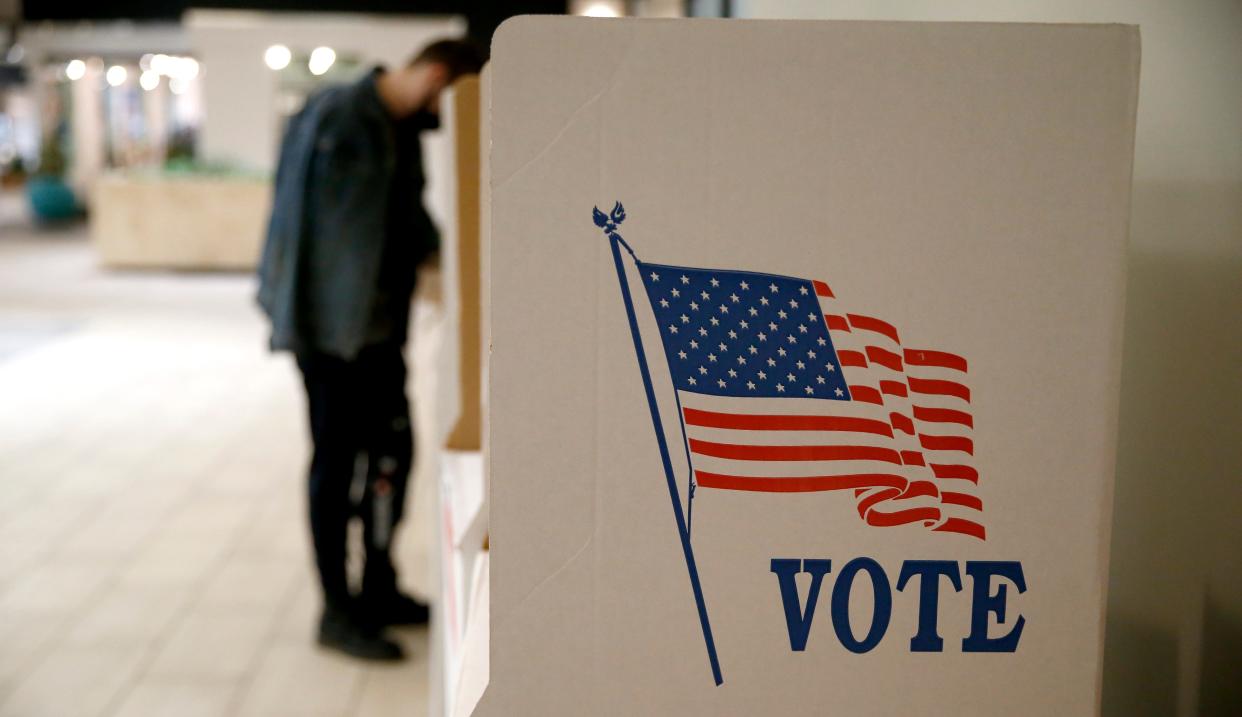Oklahoma students are required to take a civics test to graduate. Has it impacted voter turnout?

Requiring students to take a civics test to graduate from high school, as Oklahoma started doing last year, has shown no nationwide impact on boosting young voter turnout, a new study found.
None of the studied states that require a civics exam had increased levels of voter participation in presidential elections among those age 18 to 22, according to findings from two Pennsylvania State University researchers.
As of 2022, 18 states had implemented a version of the testing requirement, which often involves questions from the U.S. naturalization test. The study didn’t examine Oklahoma’s young voter participation rates because the state hadn’t required a civics test before the last presidential election in 2020.
The high school class of 2025 will be the first in Oklahoma to take the U.S. naturalization test in order to graduate. House Bill 2030, which became law in 2021, took effect in the 2022-23 school year.
How active are young Oklahoma voters?
Participation of young voters has been low in the state. An Oklahoma Watch analysis found fewer than 25% of registered voters under age 30 cast votes in last year’s November elections, and under 10% did so on March 7 when a proposal was on the ballot to legalize recreational marijuana.
The naturalization test’s lack of impact on voter turnout is no surprise, said Andy Moore, founder and CEO of Let’s Fix This, a local nonprofit focused on civic engagement.
The exam is “the floor, not the ceiling of what civic education should be,” he said.
Students could be more engaged if they learn about public policy issues that affect their communities and how their vote plays a role.
More: Could Oklahoma turn to ranked choice voting? It would be expensive, elections chief says
“The test is really designed to assess students’ rote memory recall about history and maybe about the mechanics of the process,” Moore said. “That is very different from connecting students’ understanding of current issues with the importance of voting.”
Rather than having students memorize political knowledge, the study’s authors suggested a greater focus on practical civic activities, like learning how to register to vote, visiting legislators and taking part in a get-out-the-vote campaign.
Oklahoma’s new online voter registration service could help, Moore said, and the state could go even further by expanding early voting opportunities, proactively contacting students to encourage voter registration or automatically registering voters once they turn 18.
For one lawmaker who co-authored HB 2030, voter turnout wasn’t the goal.
Rep. Mark Lepak, R-Claremore, said his desired outcome was that students have basic knowledge of American history and government.
“If we’re going to require a foreigner to pass this test, then it seems our citizens ought to know those same things,” he said.
Oklahoma Voice is part of States Newsroom, a nonprofit news network supported by grants and a coalition of donors as a 501c(3) public charity. Oklahoma Voice maintains editorial independence. Contact Editor Janelle Stecklein for questions: info@oklahomavoice.com. Follow Oklahoma Voice on Facebook and Twitter.
This article originally appeared on Oklahoman: Oklahoma civics test has little impact on whether young people vote

